Listen to this article 3 min
Doctors, nurses, and other health care practitioners are there at some of the best and worst moments of our lives — when babies are born, when pain is relieved, when we learn our loved ones are gravely ill or have died. We place our physical and mental burdens into their care. We place our trust in them and give them our hopes and fears. And this is why, for a quarter century, MBJ has honored these medical professionals in our annual Health Care Heroes awards.
Here are the finalists in the Health Care Providers-Non-Physicians category of the 2023 Health Care Heroes.
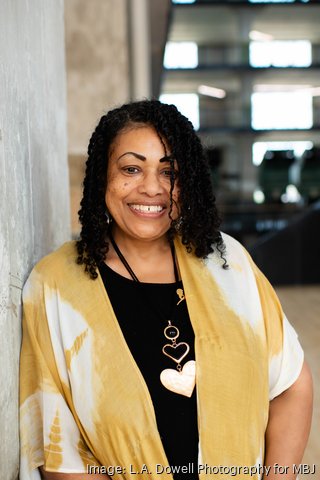
Yvonne Carroll
Director of patient services, Department of Hematology, St. Jude Children’s Research Hospital
Transitioning from being a lawyer to a nurse was “truly the right decision” for Yvonne Carroll. Her workdays now may involve a mix of conference calls with the team in Kano, Nigeria; meetings to discuss sickle cell curriculum; co-chairing the Women and Allies Resource group; making presentations; and planning conferences.
She said the most common misconception about her field is that the only career path open to nurses is bedside nursing. But there are actually “innumerable” career paths: in research and academia, administration, and more. And if she could change one thing, she’d like to see a more holistic approach to health care, because medicine doesn’t exist in a vacuum.
Carroll gives back through a sickle cell nursing bootcamp — an intensive weeklong, all-expenses-paid training program for nurses to gain expertise.
What is a memorable or career-defining moment you have had? I’ve had the opportunity to work with an incredible group of physicians and nurses in Kano, Nigeria, to help start a newborn screening program and under 7 sickle cell clinic at the Aminu Kano Teaching Hospital.
Through a grant from the LINKS Foundation, the generosity of St. Jude and ALSAC, and years of challenging work … the program has screened more than 6,000 newborns for sickle cell disease. This is significant because Nigeria has the largest population of people with sickle cell disease in the world, and it does not have universal newborn screening; 50%–90% of the children die before their 5th birthday, as opposed to the U.S., which has universal newborn screening in all 50 states for sickle cell, and 95% of children live to reach 18 years old.
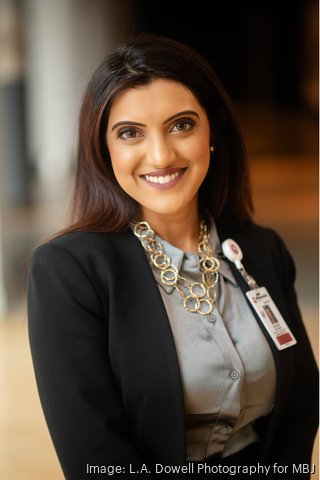
Gayatri Jaishankar
Senior director and transplant administrator, Methodist Transplant Institute, Methodist Le Bonheur Healthcare
Growing up in India, Gayatri Jaishankar developed a sensitivity to social and economic disparities, particularly around health and health care access. Realizing that access to health care is the most fundamental of needs and the basis of betterment of human life, health care administration became her professional calling.
Loving her role in a “dynamic and exciting” field, if she could change one thing, it would be to make “health care, especially primary care medicine, accessible to all.”
Ways she gives back to the community include mentoring and providing internship opportunities to high school and college students. She’s also a board member of MidSouth Healthcare Executives.
Though Jaishankar’s fortunate to have many memorable and career-defining moments, she points to negotiating single case agreements for patients who need urgent transplant listing but may be out-of-network through their primary insurance.
Facilitating and expediting many such agreements has made life-saving transplants possible, without adding any financial burden for the patient.
What is your favorite thing about your job? I get to work with a team of dedicated and passionate health care workers. The care that’s provided at the Methodist Transplant Institute transforms lives every day. It provides hope to patients during their hardest times. I feel humbled and grateful that I not only have the honor to lead this team but am able to play a part in making this difference to a patient’s life. Organ donation and transplantation is the most beautiful and selfless gift possible, and I consider it a privilege to be able to support this need through my work.
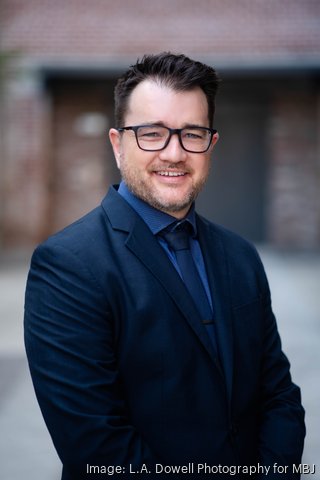
Jesse Malott
Chair, Behavioral Health and Social Work, Christ Community Health Services
Desiring to work with people who’ve experienced trauma — and partly because of his own personal trauma experiences — Jesse Malott eagerly joined the mental health field as a clinical psychologist. These days, his “meaningful” job is a blend of direct patient care and leading and building the behavioral health, social work, and nutrition programs.
Giving back, Malott develops and supports training programs; writes grants; provides free community trainings and workshops; helps develop interagency cooperation; serves as president-elect on the board of directors for the Tennessee Psychological Association; and, somehow, even more.
A career-defining moment involved a patient he first saw as a homeless teen struggling with addiction and traumatic experiences. Through Malott’s work and helpful partners, the patient was successful. Four years later, she visited Malott: She’d earned a psychology degree, started grad school to become a psychologist, and had a husband and newborn.
“She was so proud of herself and the work she had done,” Malott said. “I was proud of her too.”
If you could change one thing about your field in the health care industry, what would it be? I’d want to increase the financial reimbursements for mental health providers for Medicaid, Medicare, and the uninsured. Most mental health clinicians go into private practice and will often only see patients who have financial resources. This means that most of the people who need mental health support will never get it. This is why I participate in advocacy efforts to change our legislation so that we can reduce disparity of mental health care for the underserved.
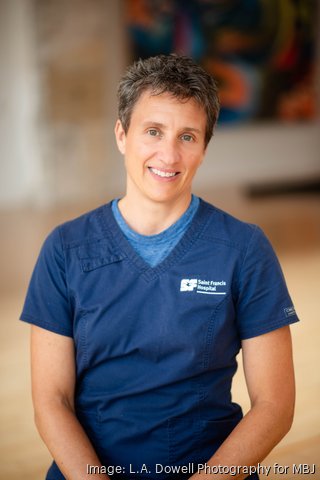
Beth Trouy
Outpatient rehab supervisor, Saint Francis Hospital-Memphis; adjunct professor, Physical Therapy, UTHSC
With both parents in medicine — dad was a biochemist involved in pediatric research for Le Bonheur, mom is a retired NICU nurse and nursing school teacher — Beth Trouy always knew she wanted a job in the medical field. Interested in the musculoskeletal system, physical therapy allows her to use her skills as a motivational coach, educator, and hands-on clinician in diagnosing and treating musculoskeletal disorders and open wounds.
Her busy days are a mix of frontline managing by working on schedules, reconciling charges, and trouble-shooting departmental challenges, along with patient care.
“I think the human body is an incredibly amazing thing, and being instrumental in helping people regain quality of life, for however long that may be, is an honor,” she said.
If she could change one thing about her field, it would be for physical therapists to be consulted in the early stages of injury or dysfunction rather than patients and physicians waiting until the problem is more advanced. As a society leaning toward pills and a quick fix, we focus “too much on managing musculoskeletal symptoms instead of looking more deeply into the initial cause.”
What advice would you give someone entering your field? Stay open to all areas of PT. I thought I wanted to treat athletes, but after school, I found I was drawn to geriatrics and wounds. Let the experience guide you. Avoid burnout: work/life balance!
What are common misconceptions people might have about your profession? Physical therapists are not massage therapists or personal trainers. We certainly can do some of these things, but our field is much more complicated.
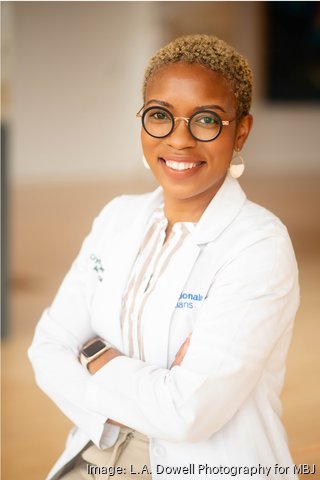
Crystal Martin Walker
Assistant professor, College of Nursing, UTHSC; advanced practice nurse, Regional One Health
Studying in South Africa in 2006 to learn about health promotion in communities of people living with HIV, Crystal Martin Walker immediately knew that she wanted to work in HIV care back in the U.S.
After working as an inpatient oncology unit nurse, she was inspired to research HPV-related cancers in HIV patients and became a family nurse practitioner to focus on health promotion and disease prevention in that population.
Seeing 15–20 patients daily, with one or two being newly diagnosed with HIV, Walker especially loves that she can create an environment where her patients feel seen, heard, and valued. Her advice for those entering the field: “Extend grace and compassion to your patients!”
Walker gives back by teaching future nurses, nurse practitioners, and nurse scientists; disseminating research about HIV as a Ph.D.-prepared researcher; presenting abstracts globally; delivering community presentations; and serving as president of the MidSouth/Tennessee chapter of the Association of Nurses in AIDS Care. She has received $4 million in grant funding.
If you could change one thing about your field in the health care industry, what would it be? I’d like to make a huge change to the health care training system in general. Health care professionals such as nurses, physicians, pharmacists, physical therapists are educated in silos. When we all graduate from our training programs, we’re all expected to magically work together and get things done.
There’s a lot of work that can be done on the training side of health care to ensure that we know about the roles and responsibilities of each discipline and have an opportunity to train alongside each other.
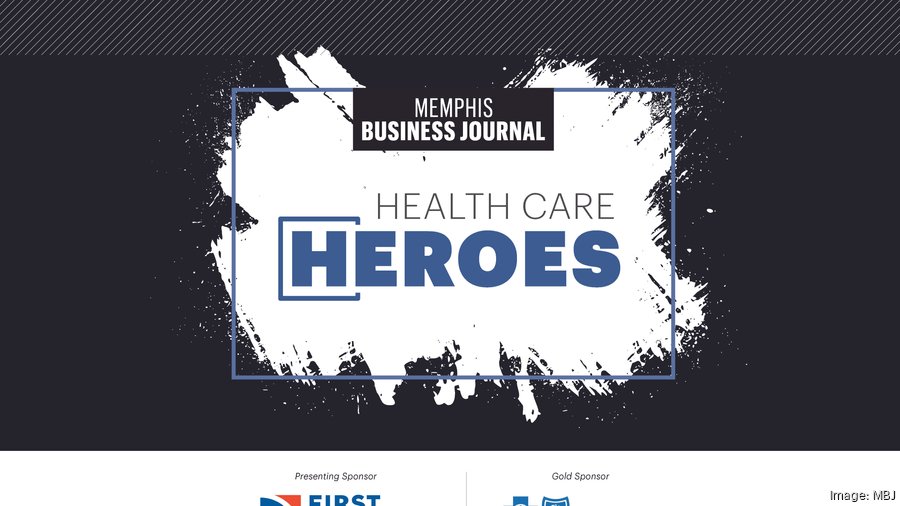






Finalists for MBJ's 2023 Health Care Heroes awards